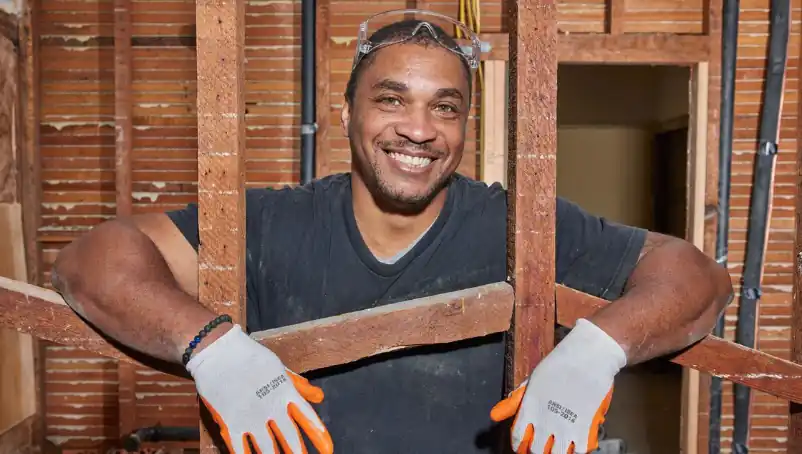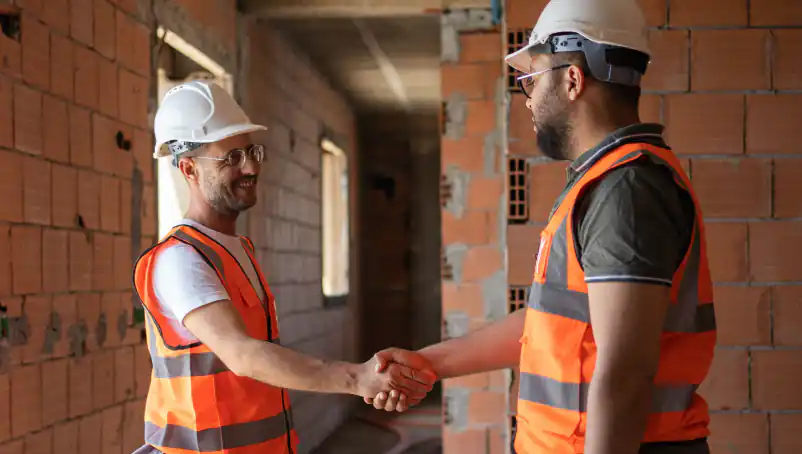When you work in the construction industry, downtime means you’re not getting paid.
Winning a steady stream of construction bids is critical if you want to keep a roof over your head and the lights on in your own home — not just the ones you're building or remodeling.
So, when your current project wraps up, your next one isn’t too far behind.
For some clients, a successful bid will have the lowest price tag. For others, it will be a combination of affordability and expertise.
While you can’t control which proposal a client accepts or how much other contractors bid, there are some things you can do to help improve your chances of submitting a successful proposal.
Here are some tips to help you get started.
Select the right projects for your business
Bidding on construction jobs you're not qualified for, don't fully understand, or can't begin on time probably won’t bring you much success.
It can be tempting to bid on any project that comes your way, especially if you’re just starting out or business is slow. But that may not be the best strategy.
Instead of playing the numbers game, casting your net far and wide, stick with projects you have a good chance of landing.
Here are three factors to consider when deciding which projects to bid on and which ones to pass up.
1. Degree of difficulty
Every time you take on a new client project, you want to knock it out of the park. It’s how you get repeat business and referrals, and it’s a lot easier to do when you’re working on projects in your wheelhouse.
Be honest about your skills. “Stretch” assignments are okay, but submitting proposals for projects well beyond your area of expertise or experience probably doesn’t make sense — and might lead to angry clients or a tarnished reputation
If a project is too good to pass up, consider partnering with someone who has the necessary experience and expertise to complete the project successfully.
2. Your schedule
If you’re booked up for the next six to nine months, and the owner wants to break ground in three, it’s probably not going to work out — unless the client’s schedule is flexible. Ask the client before spending valuable time putting together a proposal they’ll never accept.
3. Availability of materials
When bidding on construction projects, you need to find out if the products the owner or architect wants to use are available.
If not, some people may be willing to use alternate materials as long as they’re comparable, but you need to find out before putting your proposal together.
How to bid on construction jobs
A well-thought-out proposal that considers the nuances of a specific project isn't something you can just whip up in a few minutes.
Before you put anything in writing, you must have a good understanding of what the owner wants. “You’ve got to see what’s needed on the project, and that comes from the plans, typically,” says Don Brunson, owner of Brunson Construction, Inc in Dallas.
Once you have a solid understanding of what it will take to complete the project on time, on budget and to your customer's satisfaction, you're ready to put together a proposal.
Be sure to include the following.
1. Project scope
Have you ever made an "agreement" with someone only to discover that the two of you had very different ideas about what you "agreed" to? The days of sealing a contract with a wink and a handshake are over.
Including a detailed scope of work in your proposal can help get you and the client on the same page and prevent misunderstandings down the road.
2. Materials
If the products the owner or architect wants to use for the project are available, include the cost. If they aren’t, include your suggestions for comparable alternatives and the price of each.
3. Labor
Not just anyone can handle the plumbing, electrical or HVAC work on a job. You need licensed subcontractors in the city or town where the work will occur.
You’ll also want to include your own fees and markup to cover your overhead and come out with a reasonable profit. Be sure to include a line item for the cost of all labor, and even break costs down individually for transparency.
4. Permits
If the owner accepts your proposal, you'll need to get the necessary permits before beginning work. Your proposal should include a list of permits that will be required and how much each will cost.
5. Surety bond
Many owners require contractors to purchase a surety bond before work begins to protect them if the contractor doesn’t complete the job as agreed. If this is a requirement of the project you’re bidding on, include its price in the cost of the project.
6. Insurance
Owners don’t want to be on the hook for accidents or mistakes you make. So, many will require you to provide a certificate of insurance as proof that you have adequate coverage.
The types of insurance you may need can vary based on the project but often include general liability, professional liability and workers’ compensation.
7. Total price
Not only do clients want to see an itemized list of project expenses, they also want to see the total cost. Add up the numbers to give them a total so they know how much to budget for the project. If there are additional expenses not listed, include those too.
8. Timeline
If the proposal is for a large-scale project, include milestones to keep the project on track. If you agree to a deadline, make sure you stick to it. Clients don't like to hear that you will be completing the project later than planned. If you don't deliver what you promise, you may lose your shot at earning repeat business and referrals.
Check your work
You’ve heard the phrase measure twice, cut once, right? You only get one shot to submit a winning construction bid.
It’s important that you review your proposal carefully to make sure you don’t come in too low — and risk losing money if the client selects you. Or if you come in too high, you might price yourself out of the competition.
Is there a difference between residential vs. commercial bids?
According to Brunson, putting together a commercial bid isn't much different from submitting a residential project proposal, with two exceptions.
First, the materials used on residential and commercial properties are usually different.
Second, if you're submitting a bid for a commercial project, you need to complete an AIA form that lists the price for every item, including materials, labor, overhead and profit.
Because commercial construction projects tend to take longer than residential projects, you need to include the amount of money you're going to draw — that's the amount you get paid — throughout the project.
On a commercial project, you take progressive draws from the time you break ground until you complete the project. You typically get paid in three installments on residential projects because the projects have shorter timelines and are less expensive. “You’ll have one at the beginning, the middle and the end,” says Brunson.
How NEXT helps construction businesses hammer out a deal
At NEXT, purchasing the insurance you need to protect your business is fast, easy and affordable.
You can complete our online application, view coverage options, get a quote and purchase a policy in less than 10 minutes. If you need more than one type of coverage, you’ll save up to 10% when you bundle two or more policies together.
You’ll get access to your certificate of insurance as soon as you make a payment.
If you have questions at any time, our licensed U.S.-based insurance professionals are available to help.
Get started with a free quote today.






